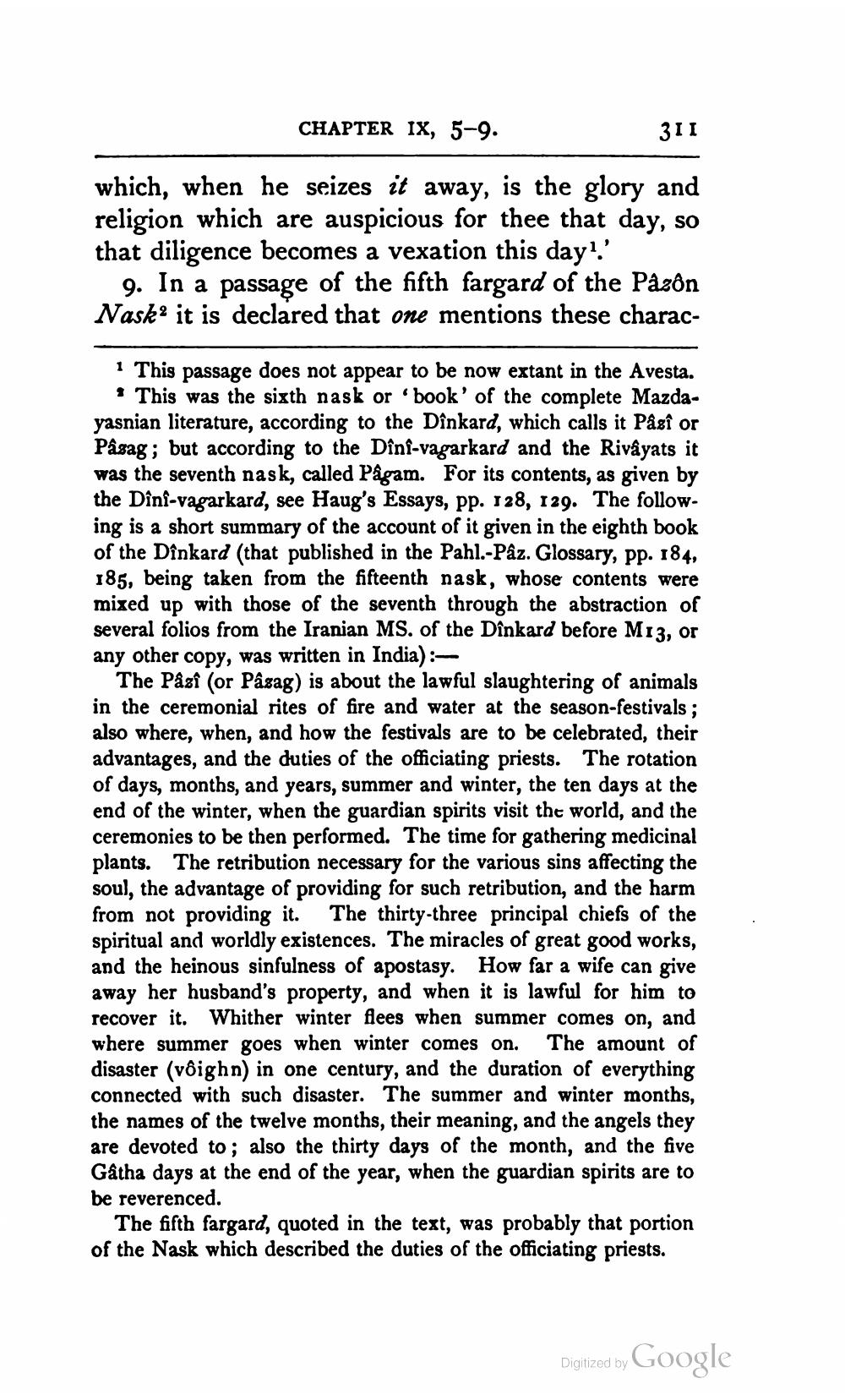________________
CHAPTER 1X, 5-9.
311
which, when he seizes it away, is the glory and religion which are auspicious for thee that day, so that diligence becomes a vexation this day?'
9. In a passage of the fifth fargard of the Pazôn Nask it is declared that one mentions these charac
1 This passage does not appear to be now extant in the Avesta.
• This was the sixth nask or book' of the complete Mazdayasnian literature, according to the Dînkard, which calls it Påsî or Pâsag; but according to the Dînf-vagarkard and the Rivậyats it was the seventh nask, called Pagam. For its contents, as given by the Dînî-vagarkard, see Haug's Essays, pp. 128, 129. The following is a short summary of the account of it given in the eighth book of the Dînkard (that published in the Pahl.-Paz. Glossary, pp. 184, 185, being taken from the fifteenth nask, whose contents were mixed up with those of the seventh through the abstraction of several folios from the Iranian MS. of the Dînkard before M13, or any other copy, was written in India):
The Påsi (or Pâsag) is about the lawful slaughtering of animals in the ceremonial rites of fire and water at the season-festivals; also where, when, and how the festivals are to be celebrated, their advantages, and the duties of the officiating priests. The rotation of days, months, and years, summer and winter, the ten days at the end of the winter, when the guardian spirits visit the world, and the ceremonies to be then performed. The time for gathering medicinal plants. The retribution necessary for the various sins affecting the soul, the advantage of providing for such retribution, and the harm from not providing it. The thirty-three principal chiefs of the spiritual and worldly existences. The miracles of great good works, and the heinous sinfulness of apostasy. How far a wife can give away her husband's property, and when it is lawful for him to recover it. Whither winter flees when summer comes on, and where summer goes when winter comes on. The amount of disaster (vôighn) in one century, and the duration of everything connected with such disaster. The summer and winter months, the names of the twelve months, their meaning, and the angels they are devoted to; also the thirty days of the month, and the five Gåtha days at the end of the year, when the guardian spirits are to be reverenced.
The fifth fargard, quoted in the text, was probably that portion of the Nask which described the duties of the officiating priests.
Digitized by Google




